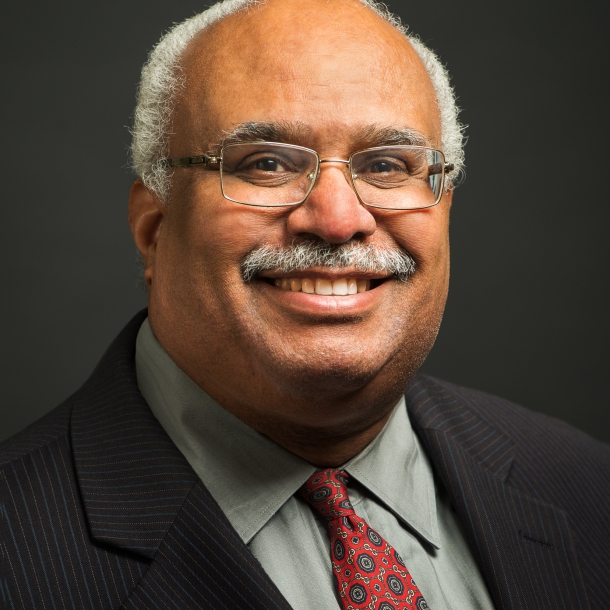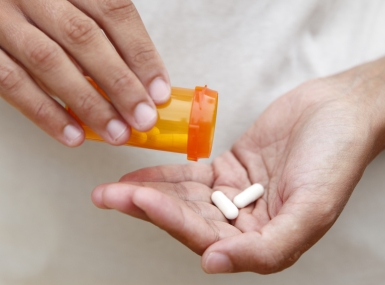Creating the healthiest nation one community at a time
Author

Georges Benjamin
Upcoming Events
Related News
By now, you’ve probably heard of the newly launched Healthiest Cities & Counties Challenge, an effort to improve health in small and midsize cities, counties and tribes across the United States, with $1.5 million in prizes up for grabs.
It’s an incredibly exciting opportunity, with the potential to generate innovative new strategies that communities nationwide can use to promote better health and prosperity for all. At the same time, it’s a daunting endeavor — the health threats facing Americans are plentiful, serious and complex.
But that’s exactly what makes this challenge unique. While the ultimate goal is to improve health outcomes, Challenge participants will also be judged on their progress in developing the kinds of multi-sector partnerships critical to sustaining efforts long after the challenge ends. We want to help bring diverse stakeholders together to explore the roles that each sector can play in creating health-promoting opportunities and then leverage those roles toward creating healthier communities and people. Our hope is that cities, counties and tribes will come together and jumpstart an ongoing dialogue around a seemingly simple question: What makes a healthy community?
Today, in the United States, the greatest threats to health aren’t infectious diseases such as measles and tuberculosis. Instead, the greatest threats we face today are chronic illnesses such as heart disease, diabetes and obesity — diseases that, for the most part, are entirely avoidable with the help of community-driven and prevention-focused actions that also address the social determinants of health.
To get a better sense of just how urgent the chronic disease problem is, consider that if current trends continue, one in every three U.S. adults will be living with diabetes by 2050. And diabetes already costs about $116 billion in medical care every year. The latest numbers from the American Heart Association find that cardiovascular diseases and stroke are responsible for one in every three U.S. deaths, with direct and indirect costs totaling more than $316 billion. In 2010, seven of the top 10 causes of death in the U.S. were attributable to chronic disease. These statistics are just the tip of the iceberg, and yet it’s enough to realize that we can — and must — do better.
The Healthiest Cities & Counties Challenge doesn’t focus specifically on chronic disease rates or on any specific disease or injury. Instead, the Challenge compels cities, counties and tribes to take a holistic and upstream view of health and zero in on improving the risk factors and social determinants that lead to chronic disease, injury, disability and premature death. For instance, Challenge participants will be judged on criteria such as nutrition, physical activity, walkability, community safety, housing affordability and secondhand smoke exposure.
These metrics reflect a core tenet of the Challenge — that producing healthy people is a community affair that requires all sectors, from transportation to housing to business, to consider the health impacts of their decision-making.
Fortunately, the evidence is piling up that making relatively easy and low-cost community changes can have an impact. For instance, a recent study found that simply relocating a farmers’ market to a space where it was more accessible by biking, walking and public transit significantly improved healthy food accessibility for low-income residents in a city struggling with food deserts.
This change — which had nothing to do with “health care”— can help encourage more physical activity, greater social cohesion, and create more equitable access to nutritious foods for residents most at risk for diet-related chronic disease. And in addition to health benefits, the move increased the market’s revenues by the millions. It’s yet another example that what’s good for our health is also good for our pocketbooks and our local economies.
Studies like this are a compelling example of how relatively low-cost, community-driven changes can have a powerful impact on people’s lives and health. It’s also a reminder that when we work together, listen to each other and elevate equity as a driving principle, we truly can make a positive difference.
The Healthiest Cities & Counties Challenge is an opportunity for communities across the country to begin and re-energize their health improvement efforts. I urge you to take a quick glance at the annual Robert Wood Johnson Foundation’s County Health Rankings & Roadmaps, which offer data on many of the metrics included in the Challenge, and ask yourself: “How can we get better together?”
Visit www.healthiestcities.org to learn more. Applications to take part in the Challenge are due May 31.
Attachments
Related News

HHS releases rule repealing federal nursing home staffing mandate, supporting county long term care facilities
On December 2, the U.S. Department of Health and Human Services (HHS) published an interim final rule that repeals the federal nursing home staffing mandate, a regulation that would have required long-term care facilities to meet strict minimum staffing levels.

Congress passes SUPPORT Act reauthorization
On September 18, the U.S. Senate passed the SUPPORT for Patients and Communities Reauthorization Act of 2025 (SUPPORT Act Reauthorization) (H.R. 2483) by voice vote, following House passage earlier this year. With strong bipartisan backing in both chambers, the legislation now heads to the President’s desk for signature.

SUPPORT Reauthorization Act of 2025: What it means for counties
On December 1, the bipartisan SUPPORT for Patients and Communities (SUPPORT) Reauthorization Act of 2025 (H.R. 2483) was signed into law. The reauthorization renews vital federal funding for programs that seek to prevent opioid overdoses and expand treatment and recovery options.